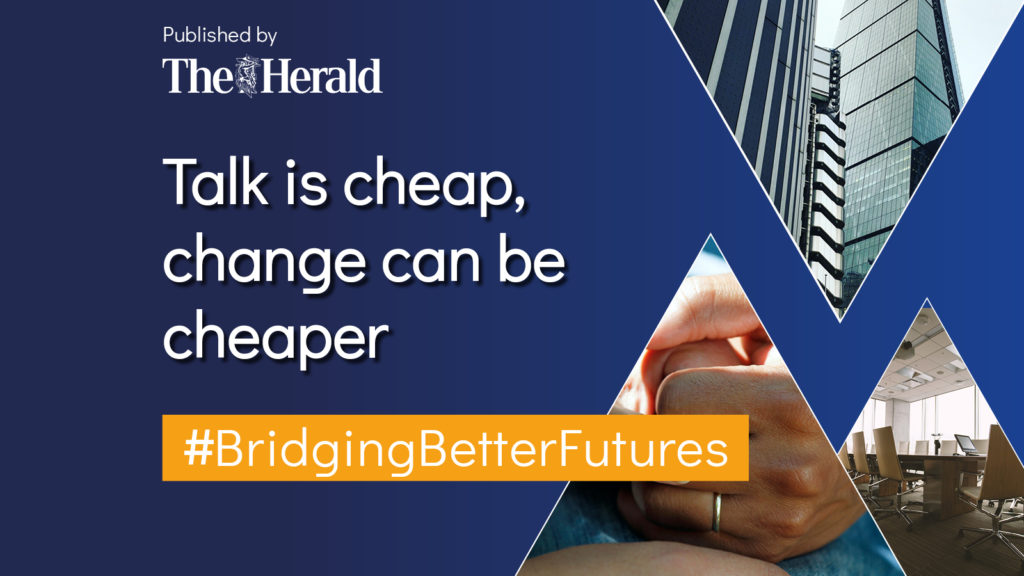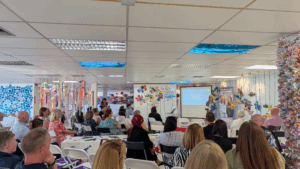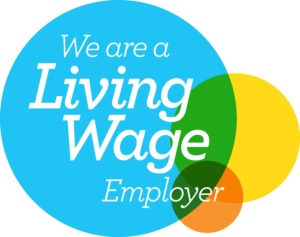
Talk is cheap, change can be cheaper
Dr. Iain MacRitchie
For fun, count how many times the word ‘change’ is used in the run-up to elections or when business fails to deliver. Everyone talks change, but have we the appetite to drive or accept it? We know human nature doesn’t like change. With COVID and an extraordinary £400bn of additional debt, change is not just inevitable, it is going to be upon us faster than we think.
Everyone with a vote or a voice should demand that those who talk change must include all three component parts.
Talking change is meaningless without a plan that combines imagination and detail of what the change could be; honesty about the current position; and the sequence of steps to achieve it. We also need to accept that some steps will go spectacularly wrong. I speak with the knowledge of leading 18 corporate transformations and advising over 100 others. More importantly, from the experience of setting up and working as a full-time volunteer in a charity that supports over 2,500 of our most disadvantaged young people. Sadly when it comes to change, we get drawn to the fast fashion of bright new initiatives and lose interest to see them through. Terms of office dictate that ideas get the profile and votes, not the delivery. I once had a senior politician advise me not to talk about any impact beyond 5 years as it would not get any interest or support. Having visited China over many years, it is no surprise that their economy continues to develop at an exceptional rate. They think and plan long term.
How do we bridge ideas with the practical reality? They feel far apart as can policymakers and practitioners; economic success and social justice are now ensuring we give our young people every employment opportunity. A youth job crisis will cost the economy £7bn next year alone. Those most impacted by COVID should not be written off by it. There are many who are motivated but we need two additional values in a deep commitment and a collective resilience when inevitably things go wrong. These values are the process and chemistry of change. It is what MCR in the MCR Pathways stands for. It drives the ambition to support over 10,000 of our most disadvantaged young people and the basis of the recent £20m Scottish Government funding.
We should also redefine what we mean by partnerships. Scotland has social justice running through its DNA and can point to successful public and private sector partnerships. It would be fantastic to take them to the next stage and swap staff and mix experiences on systematic basis. Why don’t we have current business leaders working in government? A day a week, a week a quarter, whatever. Equally politicians working in business. I know my time on the front line of issues determined the success of decisions. We need lived experience and to engage all our communities to get to the right decisions.
The good news is, the more we listen to those affected by change, the more effective our expenditure will become.
As the Scottish Care Review found, we spend £1.2bn to deliver a care system and spend £1.6bn to compensate for its failings. MCR recently commissioned research into the social cost savings from supporting young people through education to realise their full potential rather than slipping through the system and ending up damaged by it. The cost of failure is always far greater than the cost of prevention. The research estimated the savings could be over £100 million per annum in 10 years’ time.
It is time for a change in language with no place for criticism, complaint and condemnation without alternatives and solutions. We’ve seen the divisions caused when economic success is separated from social justice. One cannot live without the other. Let’s imagine a better future, be honest about the current reality and focus all our attention on the steps in between the two.






